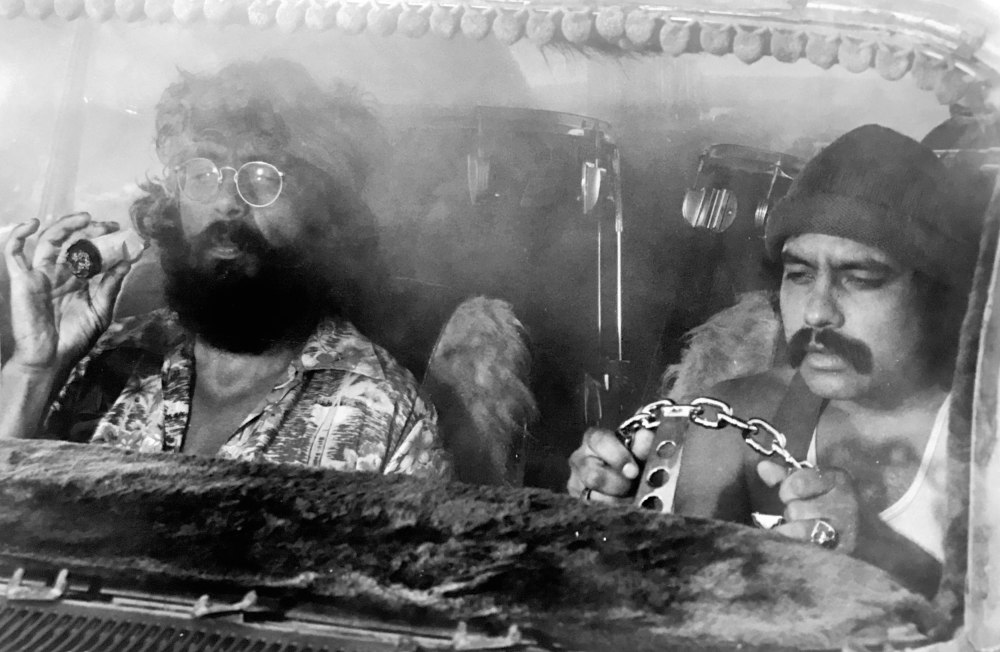Driving high is still impaired driving
Advertisement
Read this article for free:
or
Already have an account? Log in here »
We need your support!
Local journalism needs your support!
As we navigate through unprecedented times, our journalists are working harder than ever to bring you the latest local updates to keep you safe and informed.
Now, more than ever, we need your support.
Starting at $15.99 plus taxes every four weeks you can access your Brandon Sun online and full access to all content as it appears on our website.
Subscribe Nowor call circulation directly at (204) 727-0527.
Your pledge helps to ensure we provide the news that matters most to your community!
To continue reading, please subscribe:
Add Brandon Sun access to your Winnipeg Free Press subscription for only
$1 for the first 4 weeks*
*$1 will be added to your next bill. After your 4 weeks access is complete your rate will increase by $4.99 a X percent off the regular rate.
Read unlimited articles for free today:
or
Already have an account? Log in here »
Hey there, time traveller!
This article was published 09/02/2024 (587 days ago), so information in it may no longer be current.
For the past half-century at least, pop culture has been replete with references — mostly of the comedically inclined persuasion — of squint-eyed stoners left slack-jawed clueless by whatever variation of cannabis they’ve smoked or swallowed.
From the perpetually baked Jeff Spicoli in “Fast Times at Ridgemont High” to the abiding mellow wisdom of The Dude in “The Big Lebowski” to the cannabis-cultivating ambitions of Carl Spackler in “Caddyshack” to the munchie-seeking mania of the titular tandem in “Harold & Kumar Go to White Castle,” Hollywood has held firm to the position that being half-baked (or more) is hilarious.
The Winnipeg Police Service thinks otherwise, at least when it comes to the apparent inability (or unwillingness) of some motorists in the city to understand that driving while under the influence of cannabis is a serious public safety concern.

WPS officials expressed alarm at the early results of a drug-impaired driving enforcement operation that began Jan. 16 — in less than a month, officers initiated 131 traffic stops and performed 48 roadside drug tests; of those, almost half (23) tested positive for cannabis.
There’s nothing funny about that level of behind-the-wheel ignorance.
Sgt. Stephen Fontaine, who co-ordinates the WPS’s impaired driving countermeasures, called the numbers “very concerning,” and said there seem to be a few lingering misconceptions about marijuana use and motor-vehicle operation.
According to Fontaine, there are still people among us who believe — completely erroneously — that cannabis use somehow makes one a better driver. “That’s simply wrong,” he said. “People don’t appreciate the dangers of getting behind the wheel while high.”
Driving while one’s faculties are impaired in any way — by alcohol, cannabis, prescription medication or illicit drugs — is inadvisable and, quite frankly, unacceptable.
With legal access to, and consumption of, cannabis still being a relatively new Canadian phenomenon, it will undoubtedly take time for public-education campaigns regarding its safer and prudent use to catch up with the widespread public interest legalization has created in purchasing it and partaking in its recreational use.
Think how long it took for attitudes regarding drunk driving to evolve — for several decades after the advent of automobile travel, people just didn’t “get” that driving under the influence was a serious offence that carried potentially catastrophic consequences. Penalties were puny and enforcement sporadic, creating little disincentive for what was viewed as trifling naughtiness rather than a criminal act that produces carnage and heartache.
These days, the weight of public opinion, bolstered by continuing awareness efforts and ongoing enhancement of both penalties and enforcement, has made drunk driving a much less common occurrence.
Another misconception forwarded by Fontaine is that many Manitobans think they’re less likely to be caught driving stoned than they would be if they drove drunk. As the early results of the current WPS campaign clearly illustrate, enforcement related to cannabis-impaired operation of motor vehicles is real and increasingly effective.
Electronic drug analyzers, of which the WPS currently has 17, can detect the presence of illicit substances in saliva collected from drivers. Test results may vary depending on the amount and method by which cannabis is consumed, but the effects can last for up to eight hours and will reliably appear on oral swabs up to three hours after drug use.
“Our message is simple,” said Fontaine. “Don’t drive high. It is dangerous, detectable and definitely illegal.”
As is the case with alcohol-impaired driving, the continuing presence of abject stupidity among us will make it impossible to completely eliminate cannabis-addled motorists from our roadways.
But perhaps the current enforcement campaign will help convince more Manitobans there’s nothing entertaining or amusing about a high-driving act.
» Winnipeg Free Press
